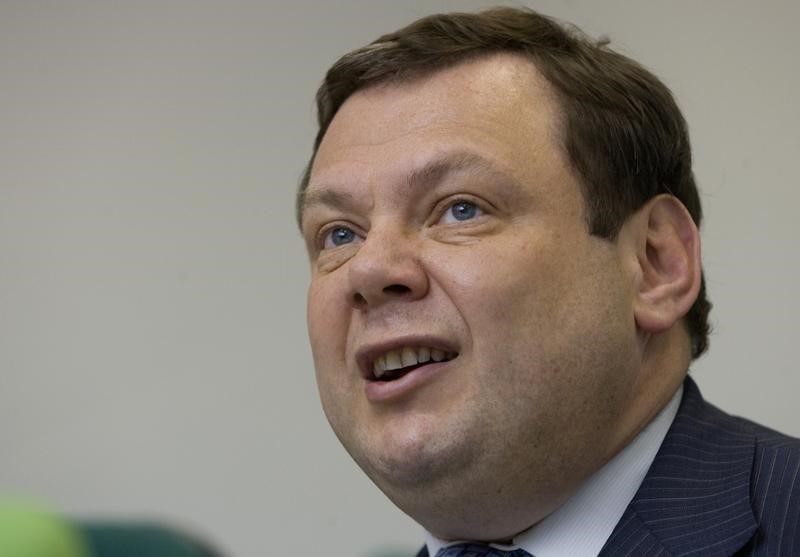By Ron Bousso and Dmitry Zhdannikov
LONDON (Reuters) - Mikhail Fridman's LetterOne fund is set to formally launch the sale of North Sea gas fields it had acquired from RWE (DE:RWEG), bowing to British threats to revoke the assets' licences unless the Russian tycoon relinquishes ownership.
The move signals that the Russian billionaire has decided against challenging the British government's rare intervention that comes amid a standoff between the West and Moscow over Russia's actions in Ukraine.
Morgan Stanley (NYSE:MS) is advising the sale which is expected to fetch a total of up to $1 billion (£656.6 million), according to several banking and industry sources. LetterOne declined to comment.
The 11 assets, which produce 3 to 5 percent of Britain's gas output, are offered individually and not as one block, two sources with knowledge of the sale said.
LetterOne took ownership of the fields in the UK North Sea as part of its purchase of DEA, RWE's oil and gas unit, for 5.1 billion euros (£3.7 billion), with oil and gas assets in Norway, Egypt, Libya, Germany, Poland, Turkmenistan and Algeria.
But in February, Britain's government said it would block the deal on concerns about the impact of any future potential sanctions on Russia or LetterOne's owners might have on the operation of the North Sea fields.
"Morgan Stanley will officially announce shortly the sale of LetterOne's North Sea assets," one source said. "I expect a lot of people will run their eyes over them."
On April 20, Energy Minister Ed Davey proposed to revoke DEA UK's North Sea licences "unless LetterOne arranges for a further change of control of the DEA UK gas fields in the North Sea", the ministry said in a statement.
The ministry, which said the decision was made after assessing cross-government views, said Davey had given LetterOne six months to sell the assets.
The decision, taken less than three weeks before Thursday's UK general election, comes as Britain's North Sea faces a dire need for new investments as its oil and gas reserves dwindle and major oil companies reduce their presence in the area.
Ukrainian-born Fridman, who made a fortune in Russia after the Soviet Union collapsed in 1991, has tried to allay British worries by grouping the assets at the centre of the dispute in a Dutch foundation, a step he says would insulate them from any possible sanctions.
Fridman, 50, is ranked by Forbes as the world's 68th richest person with a fortune of $14.6 billion, while his business partner and a shareholder in LetterOne, German Khan, 53, is ranked 133rd with $9.5 billion.

LetterOne hired John Browne, former chief executive of BP (L:BP), to help expand DEA globally, including in the United States, and possibly salvage the North Sea deal.